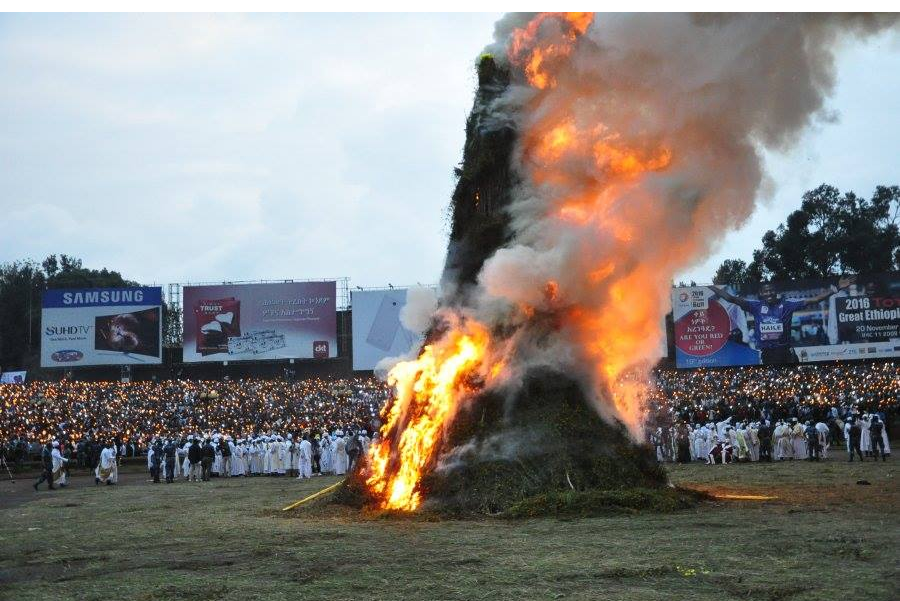Ethiopia Christians Celebrating Finding of True Cross - ENA English
Ethiopia Christians Celebrating Finding of True Cross

Addis Ababa September 27/2018 Orthodox and Catholic Christians in Ethiopia are celebrating Meskel, the finding of the True Cross on which Jesus Christ was crucified. The celebration starts on the eve of Meskel with the lighting of huge bonfire planted in town squares and streets known as "Demera" on 16 September. Orthodox Christians light the huge bonfire erected at Addis Ababa’s Meskel Square with the presence of Patriarch of the Church, high level government officials and tens of thousands of followers. A procession of priests and Sunday school students combined with the flaming torches made of wax carried by people who attended the festival and special songs make the Demera festival colorful. The next day 17 September, is the actual day of Meskel. On this day, early in the morning, people go to the spot where the Demera burned and use the ashes to mark their foreheads with the sign of the cross. Christians mark Meskel to commemorate the finding of the True Cross in the fourth century by Queen Helena, the mother of Roman Emperor Constantine the Great. In 326 AD, Queen Helena who prayed for guidance to find the cross was directed by smoke from a burning fire to the location. Believing Queen Helena had lit torches to celebrate the finding of the True Cross; Ethiopian Orthodox Christians follow her practice, burning a huge bonfire every year on 16th of September and on the 17th during a leap year. According to Ethiopian Orthodox Church records, the then Patriarch of Alexandria gave Ethiopian Emperor Dawit a fragment of the cross in which Jesus Christ has crucified on is found in Ethiopia in one of the Orthodox Churches. This fragment of the Cross is believed to be held in the Monastery of Gishen Mariam in the northern part of the country. The celebration of lighting the bonfire at the Meskel Square as part of the celebration of the finding of the Rue Cross has inscribed by UNESCO as intangible world heritage